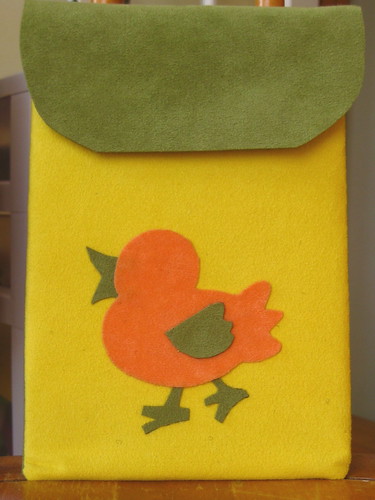
One would think that having a new kindle2 and going to a book group would mean a show-and-tell. Alas, not the case. I had brought my kindle, in its gorgeous ultrasuede cover, but it stayed in my purse.
We even talked about kindles. Someone brought them up, someone else mentioned a Seattle Times article than "panned them." The career bookseller was pleased to hear that.
 (It didn't, not really.) Her livelihood is at stake. But most people had never seen a kindle and no one had seen a kindle 2. One person mentioned that a little wistful. But I was too chicken to get controversial. Little did they know they were about four feet away from one. The negative things they said about the kindle? Most of them weren't true.
(It didn't, not really.) Her livelihood is at stake. But most people had never seen a kindle and no one had seen a kindle 2. One person mentioned that a little wistful. But I was too chicken to get controversial. Little did they know they were about four feet away from one. The negative things they said about the kindle? Most of them weren't true.Face it. Kindle or its competitors will change bookselling. And in some ways, it's about time. Sorry about that, but times change. There will still be a market for bricks and mortar bookstores, for real live booksellers, at least in the near future, but the times are changing.
- Like holding a book in your hands? Well, actually I don't. I find my hands hurt after too long holding a book open. And some books are heavy and awkward to hold. A kindle is like getting ergonomic bars on your bicycle. All of a sudden, many other hand positions are available and no more cramping.
- Multi-tasking. I like to knit, but that cuts into my reading time. I thought audiobooks would be the thing, but they aren't always appropriate. I can read a children's chapter book (big print) and knit, as long as the spine is already broken on the book. With the kindle, my reading while knitting options open up wide.
- No backlight? I love the fact that it doesn't have a light! It's easy on the eyes, easy on the power consumption, all around a win. I am fine with greyscale. Color is over rated.
- Weight of books. Several people mention being able to take lots of books on vacation, not running out if the plane is delayed. I also see this as the future of textbooks. My teen's backpack is lethal. There's no reason he should be carrying around all that weight all day. (sure there are lockers, but not enough for everyone and not enough time between bells to utilize it anyway.) Just think if all or most all textbooks were e-books. A savings all round.
- Formatting pdfs and blogs and newspapers. So it's a work in progress. I downloaded the free sample first chapter of my graduate school Algebra text to see how it handled the symbols and it was fine. I haven't tried a knitting pattern yet. I expect some will be frustrating, some might be fine.
- Not being able to share or resell books? I suspect that's a work in progress as well.

